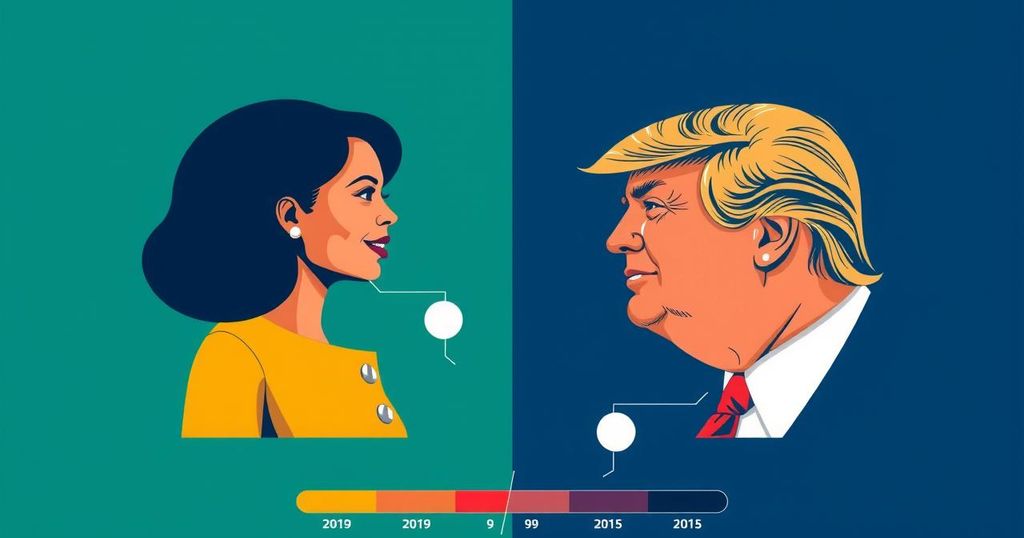As the U.S. presidential election nears, world leaders exhibit diverse preferences for either Kamala Harris or Donald Trump. Putin favors Trump for perceived leniency on Russia, while European leaders lean towards Harris for her multilateralism. China’s Xi maintains neutrality, and India’s Modi is seen as independent of preference. Netanyahu is thought to favor Trump, and Australia expresses concerns about a potential Trump administration. Overall, global leaders are aligning their expectations based on strategic national interests and historical contexts surrounding both candidates’ foreign policies.
As the United States approaches its presidential election on November 5, current polling indicates that Democratic Vice President Kamala Harris and former Republican President Donald Trump are in a highly competitive race. Given the global significance of the U.S. political landscape, world leaders are monitoring the election closely, weighing their preferences for potential leadership in the White House. Vladimir Putin, President of Russia, has indicated a potential inclination towards Trump, citing Trump’s perceived leniency towards Russia and a possible reduction of support for Ukraine. Analysts suggest that Putin might view Trump as an ally in undermining Western democratic institutions, given Trump’s previous actions that fostered disunity within NATO and the European Union. Xi Jinping, President of China, has not publicly stated a preference, yet behind the scenes, there are suggestions that Harris may be viewed more favorably due to the potential for consistent policy towards China, particularly regarding trade. Benjamin Netanyahu, Prime Minister of Israel, has not made an official endorsement but is believed to lean towards Trump, given their historically strong relationship. Conversely, many European and NATO leaders appear to prefer Harris, citing her commitment to multilateralism and cooperation in global issues. India’s Prime Minister Narendra Modi maintains a neutral stance, recognizing the strategic continuity both candidates may offer, while South Korea’s relationship with the U.S. has flourished under Biden, leaving them uncertain about a potential Trump presidency due to past tensions. Australia’s sentiments reflect concerns about a Trump administration’s adherence to international climate commitments, as well as its impact on trade relations with China. In summary, the perspectives of global leaders on the upcoming U.S. election reflect a complex interplay of national interests, historical alliances, and enduring geopolitical strategies. The eventual outcome will not only shape U.S. domestic policies but also significantly influence international relations and global governance.
As the United States prepares for its presidential election, the implications of the electoral outcome resonate beyond American borders due to the U.S.’s dominant position on the global stage. Various world leaders hold distinct views on the potential candidates, influenced by past interactions, national interests, and the broader geopolitical landscape. This examination highlights the contrasting preferences of global leaders regarding Harris and Trump, reflecting their respective visions for U.S. foreign policy and international collaboration.
In conclusion, the preferences of world leaders regarding the U.S. presidential election underscore the intricacies of international relations and the varying importance they place on individual candidates. While Trump enjoys favorable sentiments from leaders like Putin and Netanyahu, many European and NATO leaders express support for Harris, anticipating a more collaborative approach. Observing these preferences provides insights into how the forthcoming electoral outcome may reshape U.S. foreign relations and global alliances moving forward.
Original Source: www.aljazeera.com






